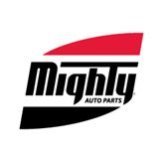-
Welcome to Auto Parts Forum
Whether you are a veteran automotive parts guru or just someone looking for some quick auto parts advice, register today and start a new topic in our forum. Registration is free and you can even sign up with social network platforms such as Facebook, X, and LinkedIn.
Pinout connection ECU car on bench Bosch Delphi Marelli Siemens Motorolla Continental Sagem Denso Visteon
-
Similar Topics
-
By APF
When selecting parts for a car repair, it pays to know the differences between original and aftermarket parts. Whenever possible, get estimates for both.
Choosing between original and aftermarket car parts — and even used parts of either type — is all about squaring your priorities with your budget.
You’ll have different options depending on the part and the shop. And the best choice will depend on whether you’re trying to keep repairs cheap, restore your car’s appearance after a wreck or soup up your ride.
» SIGN UP: link hidden, please login to view
Before we get into that, here are the key differences:
Original equipment manufacturer (OEM) parts match those that came with your car, and are of the same quality as its original parts. They’re also the most expensive. Aftermarket parts are cheaper, and made by other manufacturers — often several, giving you more options. Used parts may have a bit of wear and tear, but should be inspected or rebuilt to ensure they’ll work. These are the cheapest option. Choosing between aftermarket and OEM parts
Your decision will depend on the type of repair and the quality and price of the parts. Always look for parts that come with a warranty, even if they’re OEM, so you’ll be protected in case they fail.
Auto body repairs
Some aftermarket parts may be OK for
link hidden, please login to view, but others won’t be as good, says Michael Calkins, manager of technical services at AAA. “There’s a lot of variation in quality.” For example, he says, aftermarket parts often don’t have the same level of rustproofing as original parts, fit and finish don’t match, or panels don’t align properly. If OEM parts are used in auto body repair, the car should look and work exactly as it did before the damage, because everything will match up. OEM parts are also crash-tested, unlike many aftermarket parts.
Aftermarket parts come at varying price points and levels of quality, but because they are cheaper, insurance companies often prefer them. If you want OEM parts but are dealing with an insurer that wants the shop to use aftermarket parts, ask to pay the difference.
“There’s also the option of used parts, depending on the age of the vehicle,” Calkins says. “It may be cheaper than an aftermarket part but still have all of the original quality.”
Mechanical repairs
A used part, whether it’s OEM or aftermarket, can really save money on repairs under the hood, so long as it’s inspected first and warrantied. And some aftermarket companies reverse-engineer their products to be even better than OEM versions.
For example, many car buffs will tell you that you can get heavy-duty shocks and struts or brake pads that are made of stronger materials. Scan some reviews online, or talk with your mechanic if you’re not sure whether an aftermarket part could be an upgrade.
Adding some extras
If you’d like to modify your ride by adding something like a backup camera or back-seat TV screen, you’ll probably be looking for aftermarket parts. Certain aftermarket upgrades could increase
link hidden, please login to view. This is especially true for improvements like a better sound system or alloy wheels, rather than mechanical repairs. Who provides OEM or aftermarket parts?
The options you’ll have for parts depends on the nature of the repairs and what type of shop you take your car to:
Dealership repair shops will offer only OEM parts — they have no reason to offer a cheaper product from a competitor link hidden, please login to view may be able to offer you a choice between OEM and aftermarket parts Independent garages that specialize in your type of vehicle will likely have both, but with quicker access to OEM parts, including used OEM parts, which can really save you Auto body shops can offer both, but if your collision repair is part of an insurance claim, the insurer will likely prefer aftermarket parts to save money Depending on the job, the cost of OEM versus aftermarket parts varies. Whenever you’re given the choice, ask to see estimates for both so you can weigh your options.
Source:
link hidden, please login to view -
By WiperTech008
How car wiper works
Car wipers help drivers see clearly when it's raining or snowing. They’re a small but important part of the car. Here’s a simple look at how they work:
Wiper Blades
They’re just rubber (or sometimes silicone) strips that slide across your windshield to keep it clear.
Wiper Arms
The metal arms hold the blades and move them back and forth across the glass.
Wiper Motor
There’s a little electric motor under the hood that makes the arms move. It’s usually under the hood.
Linkage
This is a set of mechanical parts that connect the motor to the arms. It makes sure both arms move together smoothly.
Wiper Pivot
This is the spot where the arms are attached to the car. It lets the arms rotate as they move.
Wiper Switch
You turn the wipers on and off with a switch—usually on the dashboard or the steering wheel.
Wiper Relay
This part controls the power going to the motor. It helps the wipers run at different speeds, like slow, fast, or on and off (intermittent).
How It All Works Together
When you turn on the wipers, the switch sends a signal to the relay. The relay gives power to the motor. The motor starts spinning, and the linkage changes that spinning motion into the back-and-forth movement of the arms. They just sweep across the windshield and get rid of whatever’s in the way.
Intermittent Wiping
For light rain, you can use the intermittent setting. It makes the wipers move with short pauses in between.
Washer System
Most cars also have a washer system that sprays cleaning fluid on the windshield. When you press the washer button, a small pump sprays the fluid through nozzles to help clean the glass.
-
By Mighty Auto Parts
The post
link hidden, please login to view appeared first on link hidden, please login to view. The C6 Corvette was just removed from winter storage and was about to receive a complete service. The engine roared to life and the instrument panel reflected a systems check. Bulbs were illuminated and would time out, indicating that systems or components were functioning as normal. Moments later, a warning lamp resembling an occupant holding […]
The post
link hidden, please login to view appeared first on link hidden, please login to view.
link hidden, please login to view -
By Counterman
WIX Filters has announced it will be partnering with World Racing Group as the Preferred Filter of the World of Outlaws NOS Energy Drink Sprint Car Series. WIX said the series has a national following and is the most viewed dirt track race series in the U.S., with more than one million fans across its 90-race schedule that spans the country.
“Racers everywhere depend on the reliability of
link hidden, please login to view to ensure their high-performance cars remain competitive on the racetrack,” said Tina Davis, senior marketing manager for WIX Filters. “World of Outlaws fans will have the opportunity to see the protection and reliability our filters provide in one of the most demanding racing series in the world.”
link hidden, please login to viewsaid it will highlight its long legacy in racing by sponsoring the WIX Filters Heat Race #3, which is one of the ways racers can make it to the Feature race and a chance at Victory Lane. In addition, WIX Filters will sponsor a Competitor Contingency Award Program, in which winners will receive a cash prize for displaying the WIX Filters decal. “WIX Filters is an iconic automotive brand, and we’re excited to welcome them to the World of Outlaws and dirt racing community,” said Brian Carter, World of Outlaws CEO. “Many of their customers are already race fans and we look forward to entertaining them at every event and welcoming those who experience the World of Outlaws for the first time.”
In addition to the series sponsorship, WIX is a technical partner of the championship winning World of Outlaws team Tony Stewart/Curb-Agajanian Racing (TSR). TSR fields a Sprint Car for 10-time Series champion Donny Schatz, who holds over 300 wins in the Series and is ranked 3rd all-time. TSR has been a longtime partner with WIX, counting on WIX Filters’ advanced filtration to keep their 900-HP cars protected under the grueling conditions of dirt track racing, WIX said.
The post
link hidden, please login to view appeared first on link hidden, please login to view.
link hidden, please login to view -
-






Recommended Posts
Join the conversation
You can post now and register later. If you have an account, sign in now to post with your account.
Note: Your post will require moderator approval before it will be visible.